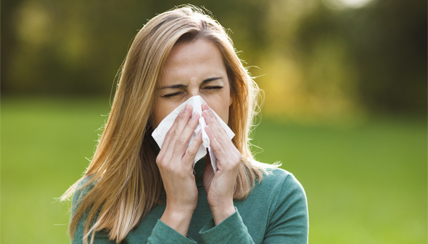Secrets to Surviving Severe Allergies_ How to Cope with Symptoms



In the United States alone, millions of people suffer from severe allergies. It’s estimated that around one in five people are affected by some form of allergic condition and the numbers continue to rise every year. Having severe allergies can be a challenge, particularly since many allergens, such as pollen and dust mites, are difficult or impossible to avoid entirely.
In this article, we’ll look at some of the best strategies for surviving severe allergies and provide tips on how to limit allergic reactions and manage them better when they do occur. We’ll also share some of the latest research on treatments and potential cures.
Best Strategies for Surviving Severe Allergies
The most important thing for people with severe allergies is to identify the triggers and take steps to limit their exposure. Here are some tips that can help:
- Educate yourself about your allergy – Knowing as much as you can about your allergy is a key first step in managing it. This includes getting an allergy test at home or from a doctor, researching potential triggers, and understanding the signs and symptoms of allergic reactions. This way, you can start to recognize what might be triggering your symptoms and take steps to limit exposure.
- Avoid your allergy triggers – Once you know what your allergy triggers are, it’s important to try and limit contact with them as much as possible. This may mean changing your diet or avoiding certain places where your allergen is more likely to be present.
- Use preventive medications – If you’re exposed to your allergens, taking certain medications may help reduce the severity of symptoms and make them easier to manage. Talk to your doctor about which medications are right for you so that you can get the best relief possible. The most common medications for allergies are antihistamines, decongestants, and corticosteroids.
- Keep an allergy diary – Keeping an allergy diary can be a great way to keep track of how your allergies affect you on a daily basis. This includes things like the timing and intensity of allergic reactions and any preventive measures you’ve taken. This can help you pinpoint what triggers your allergies and how to better manage them.
- Talk to your doctor – It’s important to talk to your doctor if you suspect you may have severe allergies or if your allergic symptoms are getting worse. They will be able to provide the best advice for managing your condition and may also be able to recommend treatments or other strategies that can help.
These are just some of the best strategies for surviving severe allergies. Keep in mind that everyone is different and what works for one person may not work for another. It’s important to experiment with different strategies until you find something that works for you.
How to Limit Allergic Reactions
Limiting your exposure to allergens is key to minimizing the severity and frequency of allergic reactions. Here are some strategies that can help:
- Clean regularly – Regularly cleaning your home and workplace can help reduce the amount of allergens in the air. This includes vacuuming, dusting, and mopping regularly.
- Keep windows and doors closed – Keeping your windows and doors closed can help keep allergens out of your home or workplace.
- Wear a mask – If you’re going to be in an area with high levels of allergens, wearing a face mask can help reduce the amount of exposure you have.
- Take showers after being outdoors – Taking a shower after being outdoors can help reduce the amount of allergens on your body and clothes. This is especially important if you’ve been in an area with high levels of pollen or other allergens.
By following these strategies, you can limit your exposure to allergens and help minimize the severity of allergic reactions.
Latest Research on Treatments and Potential Cures
The good news is that researchers are constantly working to find better treatments and potential cures for severe allergies. Here are some of the latest developments:
- Immunotherapy – Immunotherapy involves slowly introducing small amounts of an allergen into your body over time. This helps your body gradually become less sensitive to the allergen, reducing the severity of allergic reactions.
- Gene therapy – Researchers are working on using gene therapy as a potential cure for allergies. The idea is to alter specific genes that cause an allergic response in order to desensitize the body and reduce the severity of allergic reactions.
- Allergy vaccines – Researchers are also working on developing allergy vaccines that can help reduce the severity of symptoms and make them easier to manage.
These are just some of the latest developments in treating and curing severe allergies. As research continues, more potential treatments and cures may be discovered, so it’s important to keep up with the latest developments.



